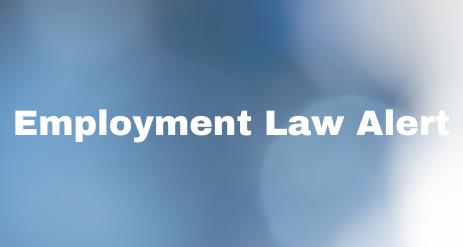On March 14, 2022, the EEOC issued new guidance regarding caregiver discrimination and the COVID-19 pandemic. The guidance explains that although federal employment discrimination laws do not prohibit employment discrimination based solely on caregiver status, employers cannot discriminate against an applicant or employee who is a caregiver based on a protected characteristic (race, color, religion, age, disability, national origin, or genetic information). The guidance also explains that caregiver discrimination is unlawful if it is based on an applicant or employee’s association with an individual with a disability or other protected characteristic of the individual for whom care is provided.
The guidance provides some examples of unlawful discrimination and harassment based on an applicant’s or employee’s pandemic-related caregiving responsibilities, including:
- Refusing an employee’s request for unpaid leave to care for a parent with long-term COVID that is a disability, while approving other employees’ requests for unpaid leave to handle other personal responsibilities;
- Refusing to promote an employee who is the primary caregiver of a child with a mental health disability that worsened during the pandemic, based on the employer’s assumption that the employee would not be fully available to coworkers and clients, or committed to the job, because of the employee’s caregiving obligations;
- Declining to hire an applicant because the applicant’s wife has a disability that puts her at higher risk of severe illness from COVID-19, and the employer fears that its health insurance costs will increase if the applicant’s wife is added to its healthcare plan;
- Criticizing or ridiculing male employees for seeking to perform, or performing, caregiving duties, such as taking leave to care for a child who is quarantining after potential COVID-19 exposure, or limiting overnight travel, based on gender stereotypes of men as breadwinners and women as caretakers; and
- Questioning, without merit, the professional dedication of employees caring for individuals with disabilities who are at higher risk of severe illness from COVID-19, or mocking such employees on that basis for taking pandemic precautionary measures to avoid infection.
In addition, the guidance makes clear that federal employment discrimination laws do not provide employees with a right to accommodations to handle caregiving duties. However, employees with caregiving responsibilities may have rights under other laws, such as the right to leave for covered caregiving purposes under the Family and Medical Leave Act. Moreover, employers are not required to excuse poor performance resulting from employees’ caregiving duties, but they may not inconsistently apply workplace discipline policies based on an employee’s protected characteristic.
If you have any questions about this Alert, please contact the Shulman Rogers attorney with whom you regularly work.

